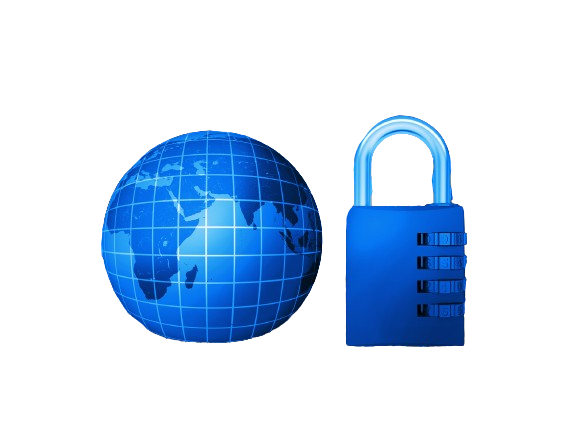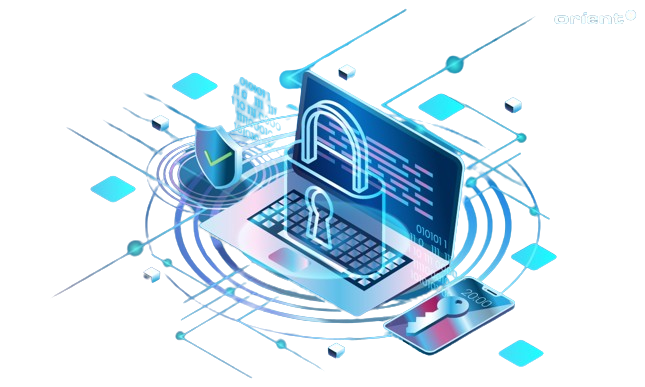Top 8 Reasons Why Network Security is Important
Network security is crucial for safeguarding sensitive data, protecting privacy, and ensuring the smooth operation of businesses and organizations. Here are the top 8 reasons why network security is important:

Why Network Security is Important
network security is essential for protecting data, maintaining the integrity and availability of resources, complying with regulations, preserving reputation, preventing financial losses, and ensuring business continuity. By investing in robust network security measures, organizations can mitigate the risks posed by cyber threats and safeguard their assets and operations effectively.
Top 8 Reasons Why Network Security is Important
Protection Against Cyber Attacks: Network security measures help prevent unauthorized access, data breaches, malware infections, and other cyber threats that could compromise the integrity, confidentiality, and availability of information.
Data Confidentiality: Network security mechanisms such as encryption and access controls ensure that sensitive data remains confidential and can only be accessed by authorized individuals or systems.
Data Integrity: Network security protocols and mechanisms help maintain the integrity of data by preventing unauthorized modifications, alterations, or deletions. This ensures that data remains accurate and reliable.
Availability of Resources: Network security measures ensure that critical resources such as servers, applications, and data are available to authorized users whenever needed, minimizing downtime due to cyber attacks or technical failures.
Compliance Requirements: Many industries have specific regulatory compliance requirements regarding the protection of sensitive information. Implementing robust network security measures helps organizations comply with these regulations and avoid potential legal consequences and penalties.
Protection of Reputation: A data breach or security incident can severely damage an organization’s reputation and erode trust among customers, partners, and stakeholders. Strong network security measures help mitigate the risk of such incidents and protect the organization’s reputation.
Financial Loss Prevention: Cyber attacks and data breaches can result in significant financial losses due to remediation costs, legal fees, regulatory fines, and loss of revenue or customers. Investing in network security can help prevent such financial losses and minimize the impact of security incidents.
Business Continuity: Network security is essential for maintaining business continuity by ensuring that critical systems and services remain operational even in the face of cyber threats or other disruptions. This allows organizations to continue serving their customers and fulfilling their obligations without interruption.

Risk Assessment and Management:
- Identify and prioritize assets: Determine what data, systems, and processes are most critical to your organization.
- Conduct regular risk assessments: Assess potential vulnerabilities and threats to your assets.
- Develop a risk management plan: Implement measures to mitigate identified risks, considering factors like likelihood and impact.
Security Policies and Procedures:
- Establish clear security policies: Define rules and guidelines for employees regarding data handling, access controls, password management, etc.
- Enforce compliance: Ensure that employees understand and adhere to security policies through training, monitoring, and enforcement mechanisms.
Access Control:
- Implement least privilege access: Limit user access to only what is necessary for their roles.
- Utilize strong authentication methods: Incorporate multi-factor authentication (MFA) where possible to enhance security.
Data Protection:
- Encrypt sensitive data: Use encryption technologies to protect data both at rest and in transit.
- Implement data loss prevention (DLP) measures: Monitor and control data movement to prevent unauthorized access or leakage.
Incident Response and Disaster Recovery:
- Develop an incident response plan: Establish procedures for detecting, responding to, and recovering from cybersecurity incidents.
- Test your plan regularly: Conduct drills and simulations to ensure your team is prepared to handle real-world incidents.
Security Awareness Training:
- Educate employees: Provide regular training sessions to increase awareness of common cyber threats and best practices for staying secure.
- Phishing awareness: Teach employees how to recognize and report phishing attempts and other social engineering tactics.
Continuous Monitoring and Improvement:
- Deploy security monitoring tools: Utilize intrusion detection systems (IDS), security information and event management (SIEM) systems, and other monitoring tools to detect and respond to threats in real-time.
- Regularly update security measures: Stay current with security patches, updates, and industry best practices to adapt to evolving threats.
Vendor and Supply Chain Security:
- Assess third-party risks: Evaluate the cybersecurity posture of vendors and partners who have access to your systems or data.
- Implement security requirements: Establish contractual agreements and security standards for vendors to follow.
Regulatory Compliance:
- Understand relevant regulations: Ensure compliance with laws and regulations applicable to your industry (e.g., GDPR, HIPAA, PCI DSS).
- Maintain documentation: Keep records of security policies, procedures, and compliance efforts for audits and regulatory purposes.
Board and Executive Oversight:
- Gain leadership buy-in: Educate executives and the board of directors about cybersecurity risks and the importance of investing in security measures.
- Provide regular updates: Keep leadership informed about the organization’s cybersecurity posture, incidents, and mitigation efforts.
infovaly help to develop a strong cybersecurity strategy of your organization to safeguard your assets and operations. Regular review and adaptation are essential to stay ahead of evolving cyber threats.



